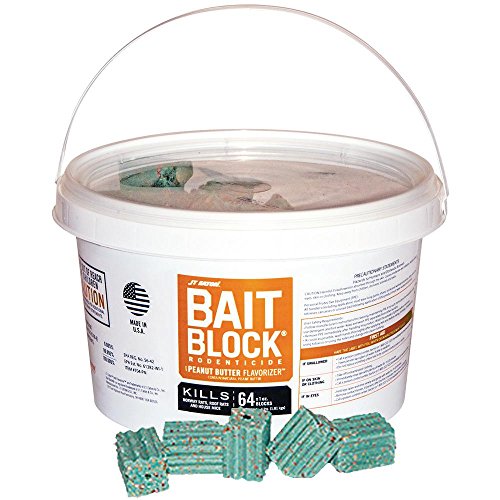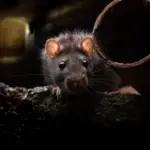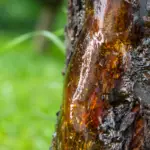Rats are one of the most common household pests, and they can cause significant damage to property and spread diseases.
If you suspect that you have a rat infestation, it is essential to act quickly to eliminate the problem.
One of the most effective ways to get rid of rats is by using traps, but to make the traps effective, you need to know what rats like to eat.
Rats are omnivores, which means that they can eat both plant and animal-based foods. They have a keen sense of smell and can detect food from a distance.
Some of the foods that rats like to eat include fruits, vegetables, grains, nuts, and meats.
However, they have individual preferences, and what works for one rat may not work for another.
Therefore, it is essential to experiment with different baits to find the most effective one for your situation.
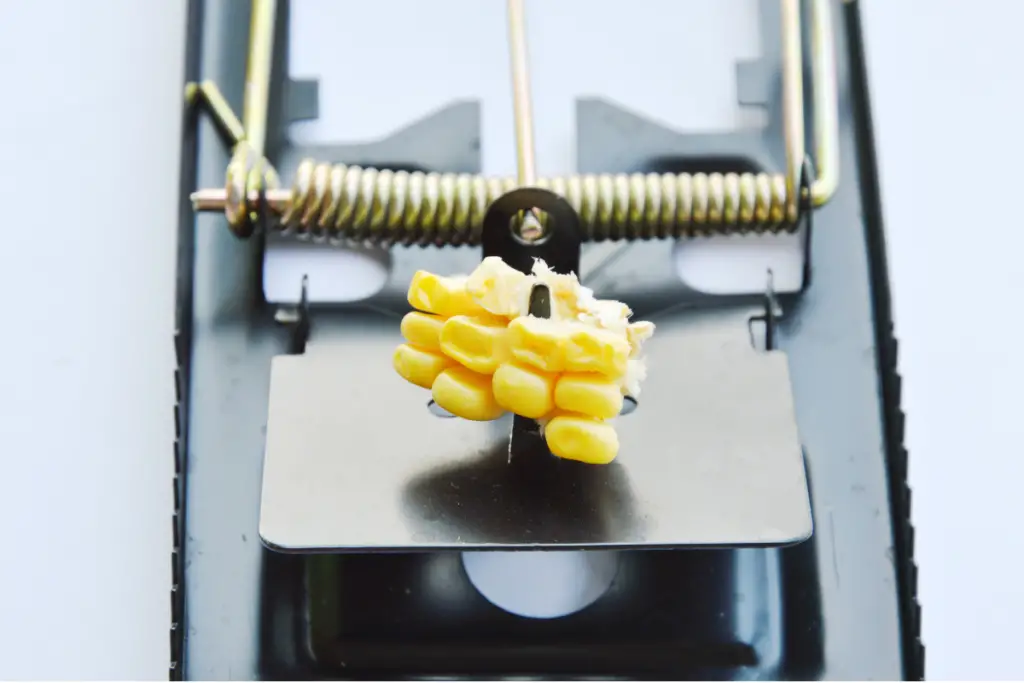
Table of Contents
Understanding Rat Feeding Habits
Rats are omnivores, which means they eat both plant and animal-based foods. They have a wide-ranging diet that can include fruits, vegetables, grains, meats, and even insects.
Understanding their feeding habits can help in catching them.
What Do Rats Eat?
In the wild, rats are opportunistic feeders and will eat whatever they can find. They are known to raid gardens, fields, and trash cans in search of food.
Domesticated rats, like their wild counterparts, require a well-rounded diet to stay healthy.
A balanced diet for pet rats should include fresh fruits and vegetables, along with a small portion of rat pellets or rat cube food daily.
Rat pellets should contain at least 16% protein content and 4-5% fat content.
Rats are also known to have a sweet tooth and will readily consume sugary foods like candy, cookies, and chocolate.
However, these foods are not recommended as they can cause health problems like obesity and dental issues.
Why Do Rats Eat Certain Foods?
Rats have evolved to eat a variety of foods to ensure they get all the nutrients they need.
They are known to have a preference for high-calorie foods like nuts, seeds, and grains, which provide them with the energy they need to survive.
Rats are also known to eat their own feces, a behavior known as coprophagy. This behavior allows them to extract additional nutrients from their food, as their digestive system is not efficient at breaking down certain compounds.
In conclusion, rats have a varied diet and will eat almost anything they can find. By understanding their feeding habits, it is possible to catch them by using the right bait.
However, it is important to note that rats are intelligent animals and may become wary of traps if they associate them with danger.
Therefore, it is recommended to use a variety of traps and bait to increase the chances of catching them.
Find out here what foods kill rats.
Identifying the Best Rat Baits
Rats are omnivorous creatures that can eat almost anything. However, some foods are more attractive to them than others.
Identifying the best rat baits can help you catch these pests more effectively.
Types of Rat Baits
There are various types of rat baits that you can use to catch these rodents. Some of the most common ones include:
- Food baits: These are the most effective baits for rats. They include peanut butter, bacon, cheese, dried fruits, and nuts. You can also use meat, such as chicken or fish, as bait.
- Poison baits: These are baits that contain toxic substances that can kill rats. They include anticoagulants, bromethalin, and cholecalciferol. Poison baits can be dangerous to pets and children, and they should be used with caution.
- Glue traps: These are traps that contain a sticky substance that can trap rats. Glue traps are not recommended because they can cause rats to suffer for a long time before they die.
Factors to Consider When Choosing Rat Baits
When choosing rat baits, you need to consider several factors to ensure that you select the most effective ones. Some of the factors to consider include:
- Rat species: Different rat species have different dietary preferences. For instance, black rats are herbivorous, while brown rats are omnivorous. You should choose baits that are suitable for the rat species that you want to catch.
- Location: The location of the rat infestation can also affect the type of baits that you should use. For instance, if the rats are in a dry area, you should use baits that are not likely to spoil quickly.
- Safety: You should always consider the safety of your family and pets when choosing rat baits. Poison baits can be dangerous, and they should be used with caution. You should also avoid using glue traps because they can cause rats to suffer.
In conclusion, identifying the best rat baits can help you catch these pests more effectively.
Read our article on our best rat trap bait.
You should choose baits that are suitable for the rat species that you want to catch, consider the location of the rat infestation, and prioritize safety.
Prices pulled from the Amazon Product Advertising API on:
Product prices and availability are accurate as of the date/time indicated and are subject to change. Any price and availability information displayed on [relevant Amazon Site(s), as applicable] at the time of purchase will apply to the purchase of this product.
DIY Rat Baits
Rats are omnivorous creatures and will eat almost anything they can find. However, to successfully catch them, it’s important to use the right bait.
Homemade rat baits can be effective and affordable, and they allow you to control the ingredients and avoid using harmful chemicals.
Homemade Rat Baits
There are many different types of homemade rat baits that you can make using common household items. Some of the most effective homemade rat baits include:
- Peanut butter: Rats love peanut butter, and it’s easy to spread on a trap or bait station.
- Cheese: Like peanut butter, cheese is a classic rat bait that can be used alone or in combination with other ingredients.
- Bacon: The strong smell of bacon can attract rats from a distance.
- Fruit: Rats have a sweet tooth and will be attracted to fruits like apples, bananas, and grapes.
- Nuts: Almonds, walnuts, and other nuts can be used as a bait or added to other baits to make them more attractive.
How to Make Homemade Rat Baits
Making homemade rat baits is easy and requires only a few ingredients. Here are some simple recipes to try:
Peanut Butter and Bacon Bait
- 1/2 cup peanut butter
- 2-3 strips of bacon
- Cook the bacon in a pan until crispy, then crumble it into small pieces.
- Mix the bacon pieces with the peanut butter until well combined.
- Spread the mixture onto a trap or bait station.
Cheese and Fruit Bait
- 1/2 cup shredded cheese
- 1/2 cup chopped fruit (apples, bananas, or grapes)
- Mix the shredded cheese and chopped fruit together in a bowl.
- Spread the mixture onto a trap or bait station.
Nutty Bait
- 1/2 cup peanut butter
- 1/4 cup chopped almonds or walnuts
- Mix the peanut butter and chopped nuts together in a bowl.
- Spread the mixture onto a trap or bait station.
By using homemade rat baits, you can increase your chances of catching rats without resorting to harmful chemicals.
Experiment with different baits to see what works best in your area and for the type of rats you are dealing with.
Commercial Rat Baits
When it comes to catching rats, commercial rat baits can be a very effective solution. These baits are designed to attract rats with their smell and taste, and then kill them with poison.
In this section, we will discuss some of the top commercial rat baits available in the market and how to use them effectively.
Top Commercial Rat Baits
There are many different types of commercial rat baits available, and choosing the right one can be a daunting task.
Here are some of the top commercial rat baits that have proven to be effective in catching rats:
- Contrac Blox: This is a popular rat bait that contains a strong poison called bromadiolone. This poison is highly toxic to rats and can kill them in just a few days.
- JT Eaton Bait Block: This is another popular rat bait that contains a poison called diphacinone. This poison is less toxic than bromadiolone, but it can still kill rats within a week.
- Tomcat All Weather Bait Chunx: This is a weather-resistant rat bait that contains a poison called bromethalin. This poison is highly toxic and can kill rats within a day.
How to Use Commercial Rat Baits
Using commercial rat baits is not as simple as just placing them around your house. Here are some tips on how to use commercial rat baits effectively:
- Place the bait in areas where rats are likely to be present, such as near their burrows or along their travel routes.
- Use multiple baits and place them in different locations to increase the chances of catching rats.
- Make sure to use gloves when handling rat baits to avoid getting the poison on your skin.
- Keep the bait away from children and pets, as the poison can be harmful to them too.
- Check the bait regularly and replace it when it has been eaten or has become contaminated.
In conclusion, commercial rat baits can be a very effective solution for catching rats.
However, it is important to choose the right bait and use it correctly to ensure that it is effective and safe.
By following the tips outlined above, you can increase your chances of catching rats and keeping your home rat-free.
Conclusion
In conclusion, rats are omnivores and can eat a wide variety of foods. They are attracted to foods that are high in fat, protein, and carbohydrates.
Therefore, when setting up rat traps, it is important to use baits that are high in these nutrients.
Based on the research, some of the best foods for attracting rats to traps include bacon, cheese, seeds, almonds, cereals, nuts, fish, berries, and peanut butter.
These foods have strong smells that rats can detect from a distance. However, it is important to note that not all rats have the same food preferences, so it may be necessary to experiment with different baits to find the most effective one.
It is also important to keep in mind that rats are intelligent creatures, and they may become wary of traps if they see other rats getting caught.
Therefore, it is recommended to move the traps around regularly and to use multiple traps at once.
Lastly, it is important to keep the surrounding area clean and free of food waste to prevent rats from being attracted to the area.
This includes properly disposing of food waste and sealing any potential entry points into the building.
By following these tips and using the right baits, it is possible to effectively catch rats and prevent them from causing damage or spreading disease.
- How to Build a Planter Box for Bamboo: A Step-by-Step Guide
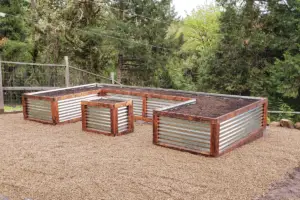
- Can Robotic Lawnmowers Handle Steep Slopes?
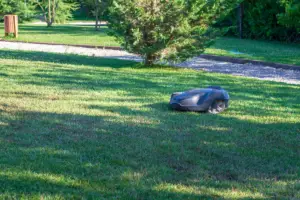
- Do You Need a Specific Lawn for a Robotic Lawnmower? Expert Advice
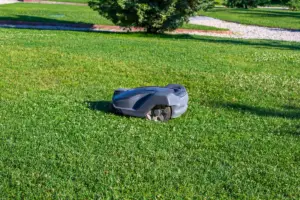
- Are Robotic Lawnmowers Safe for Pets and Children? Safety Features of Robotic Lawnmowers

- Why Use Robotic Lawnmowers? Advantages of Using a Robotic Lawnmower

- Is the GARDENA SILENO City 300 Cordless or Corded? A Clear Answer


